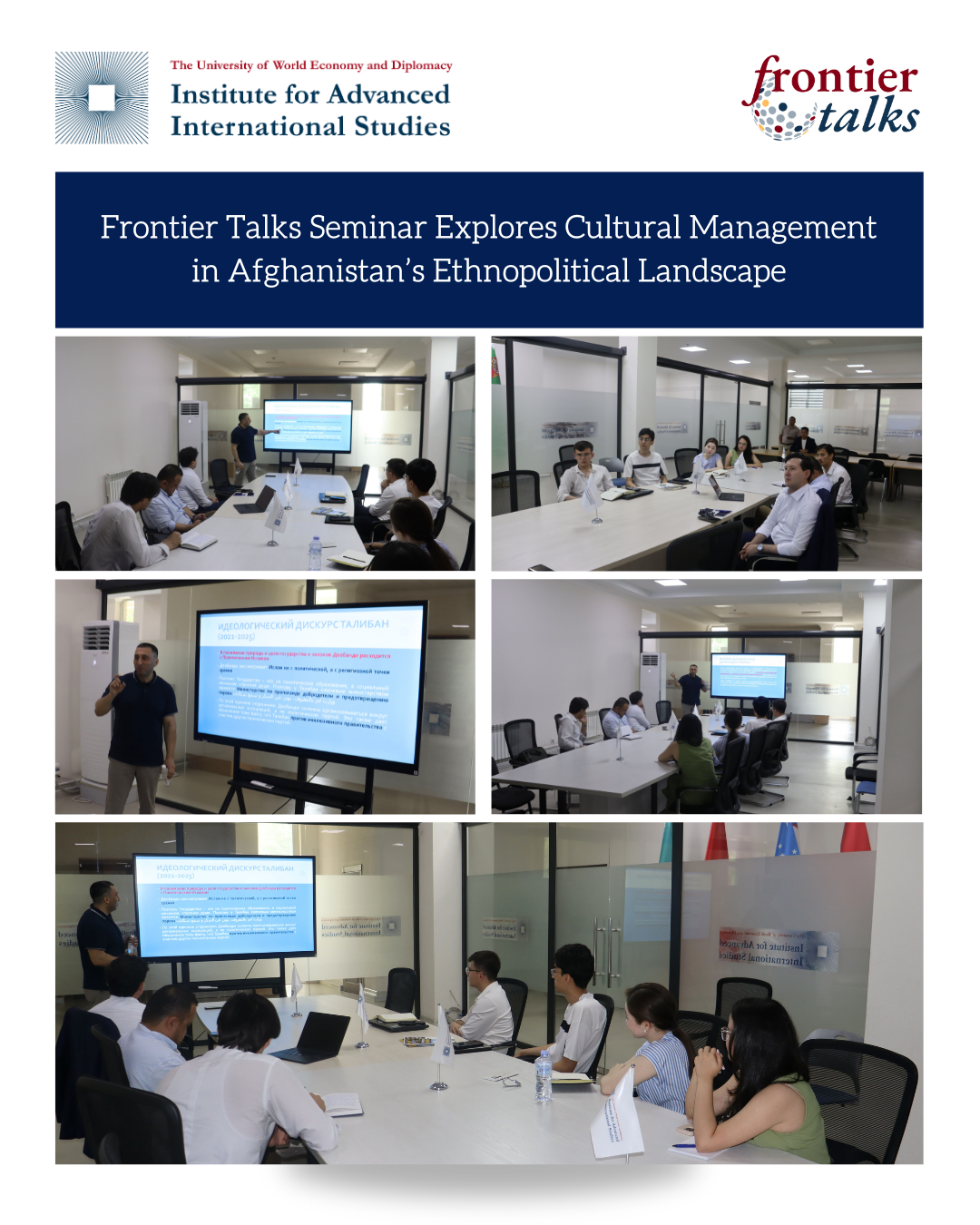
On June 9, we hosted a Frontier Talks seminar, titled “Peculiarities of Cultural Management in the Ethnopolitical Context of Afghanistan”. The session featured Rustam Makhmudov, Senior Research Fellow at the Laboratory for Anthropology and Conflict Studies, whose extensive academic and field expertise provided a nuanced exploration of the intersection between cultural governance and ethnopolitical dynamics in Afghanistan.
In his lecture, Mr. Makhmudov analysed how successive Afghan administrations, international actors, and local power groups have engaged with cultural policy as a tool for managing the country’s intricate web of ethnic, religious, and linguistic identities. Through interdisciplinary insights, he traced the ways in which cultural mechanisms have been mobilised to foster national unity, assert political legitimacy, or, in some cases, intensify fragmentation and contestation.
The seminar shed light on the role of traditional authority structures, language politics, and symbolic practices in shaping political behaviour and societal cohesion in Afghanistan. Emphasising the fluid and negotiated nature of identity in post-conflict settings, Mr. Makhmudov argued that cultural governance should be viewed not simply as policy implementation, but as an evolving process of interaction among actors operating within fragile institutional frameworks.
The event concluded with a lively Q&A session, during which participants engaged with the speaker on questions of state-building, social resilience, and the broader implications of ethnopolitical management in Central and South Asia.